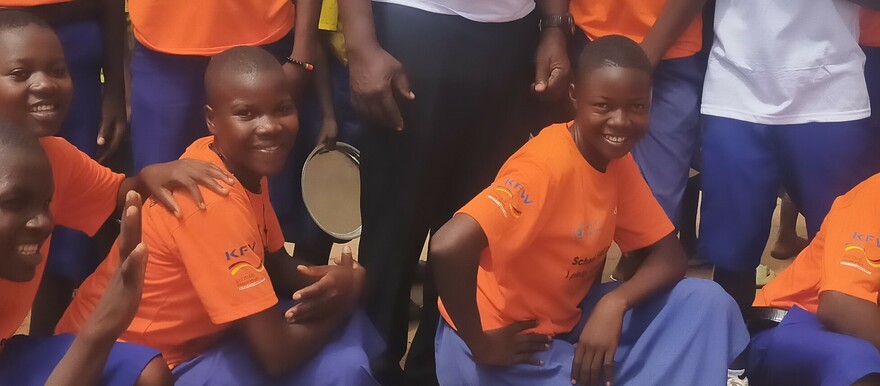Authorities in schools across Western Equatoria State said they have noted a significant decrease in early marriage and school dropout rates, particularly among girls facing pregnancies. Initiatives such as school feeding programs and cash transfers for schoolgirls, supported by organizations like Girls Education South Sudan (GESS), have played a pivotal role in this positive shift. Leaders and educators emphasize the importance of continued support and awareness to sustain these improvements and ensure the well-being of students.
Nora Justine Bati, Matron and Gender and Child Protection teacher at St. Bakhita Nursery and Primary School in Yambio, told Radio Tamazuj that this decrease is linked to initiatives such as school feeding programs and cash transfers for schoolgirls provided by Girls Education South Sudan (GESS).
Bati noted that the introduction of the school feeding program, facilitated by the WFP, has restricted girls’ access to roads where they would often seek food, consequently reducing instances of early marriages. She stated, “Early marriage was prevalent before the introduction of the school feeding program. Many cases were linked to food insecurity and financial need. However, since the implementation of the program, such cases have significantly decreased. Last year, we recorded eight cases, but this year, we haven’t registered any.”
Additionally, Bati highlighted the importance of educating girls about the risks associated with early pregnancies and marriages, emphasizing the role of parental support in providing for their children’s basic needs. She stated, “We consistently raise awareness about the dangers of romantic relationships among girls in school. I advise them not to seek relationships for financial gain since we provide food here. We also educate them about the risks of early marriage, especially how it can impact their reproductive health.”
Bati urged parents to prioritize their children’s well-being and ensure they have access to essential resources. “I would advise girls to avoid getting involved in romantic relationships with their classmates and teachers at school. Additionally, parents should ensure that their daughters have access to basic necessities, including sanitary materials. Lack of these essentials may drive girls to seek support from men. Parents should also enhance security measures for their daughters at home,” she emphasized.
Angelo Ateng, the head teacher of St. Bakhita Nursery and Primary School, reported a decline in cases of early pregnancy and child marriage at his school in recent years. He credited this positive change to the assistance provided by non-governmental organizations and the WFP’s school feeding program.
“At St. Bakhita, since I became the head teacher, I have not encountered many cases of early pregnancies or child marriages. This is largely due to the support we receive from non-governmental organizations, which provide cash transfers to motivate girls. As a result, even those who were previously not attending school have now started attending regularly,” Ateng explained.
“In our school, cases of dropout have significantly decreased. Previously, before the introduction of the school feeding programs in 2016, there were dropout cases. However, since then, such cases have not been reported because the children have access to food. Previously, when there was no food in the schools, girls would search for food by the roadside. This exposed them to higher risks of pregnancy, as some motorcycle riders would offer them money in exchange for sexual favours,” he emphasized.
Anthony Erneo Nibite, Chairman of the Parents’ Teachers Association (PTA) at St. Bakhita Primary School, highlighted the stringent rules and regulations in place to ensure girls can pursue their studies without interruption.
“We do not tolerate the marriage of young girls below marriageable age. They must focus on their studies. If there were NGOs offering money to girls, would you allow your child to be married? No, as parents, we do not condone such behaviour. In our school, we have established strict rules and regulations for all students,” he stated.
Meanwhile, Siama Joan, a 13-year-old Primary Seven Pupil, shared her perspective on the reduction of pregnancy cases among schoolgirls. “Before I became the head girl, there were instances of girls dropping out of school. However, since then, there have been no such cases. I used to organize meetings for girls in the presence of the head teacher and matron,” she said.
“In previous years, there were cases of pregnancy and early marriage due to the lack of strong rules and regulations. However, the school leadership has taken a tough stance on the issue of early pregnancy and marriage,” she added.




